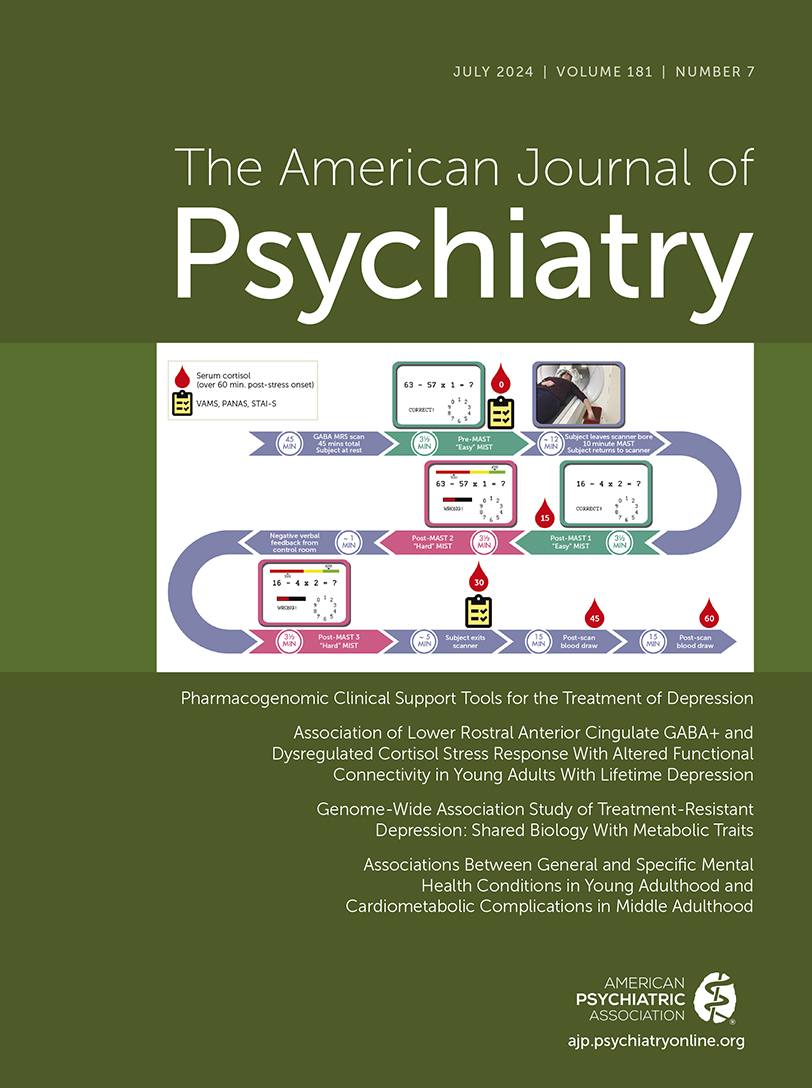Association of Occupational Dysfunction and Hospital Admissions With Different Polygenic Profiles in Bipolar Disorder
Abstract
Objective:
Many but not all persons with bipolar disorder require hospital care because of severe mood episodes. Likewise, some but not all patients experience long-term occupational dysfunction that extends beyond acute mood episodes. It is not known whether these dissimilar outcomes of bipolar disorder are driven by different polygenic profiles. Here, polygenic scores (PGSs) for major psychiatric disorders and educational attainment were assessed for associations with occupational functioning and psychiatric hospital admissions in bipolar disorder.
Methods:
A total of 4,782 patients with bipolar disorder and 2,963 control subjects were genotyped and linked to Swedish national registers. Longitudinal measures from at least 10 years of registry data were used to derive percentage of years without employment, percentage of years with long-term sick leave, and mean number of psychiatric hospital admissions per year. Ordinal regression was used to test associations between outcomes and PGSs for bipolar disorder, schizophrenia, major depressive disorder, attention deficit hyperactivity disorder (ADHD), and educational attainment. Replication analyses of hospital admissions were conducted with data from the Bipolar Disorder Research Network cohort (N=4,219).
Results:
Long-term sick leave and unemployment in bipolar disorder were significantly associated with PGSs for schizophrenia, ADHD, major depressive disorder, and educational attainment, but not with the PGS for bipolar disorder. By contrast, the number of hospital admissions per year was associated with higher PGSs for bipolar disorder and schizophrenia, but not with the other PGSs.
Conclusions:
Bipolar disorder severity (indexed by hospital admissions) was associated with a different polygenic profile than long-term occupational dysfunction. These findings have clinical implications, suggesting that mitigating occupational dysfunction requires interventions other than those deployed to prevent mood episodes.
Access content
To read the fulltext, please use one of the options below to sign in or purchase access.- Personal login
- Institutional Login
- Sign in via OpenAthens
- Register for access
-
Please login/register if you wish to pair your device and check access availability.
Not a subscriber?
PsychiatryOnline subscription options offer access to the DSM-5 library, books, journals, CME, and patient resources. This all-in-one virtual library provides psychiatrists and mental health professionals with key resources for diagnosis, treatment, research, and professional development.
Need more help? PsychiatryOnline Customer Service may be reached by emailing [email protected] or by calling 800-368-5777 (in the U.S.) or 703-907-7322 (outside the U.S.).



